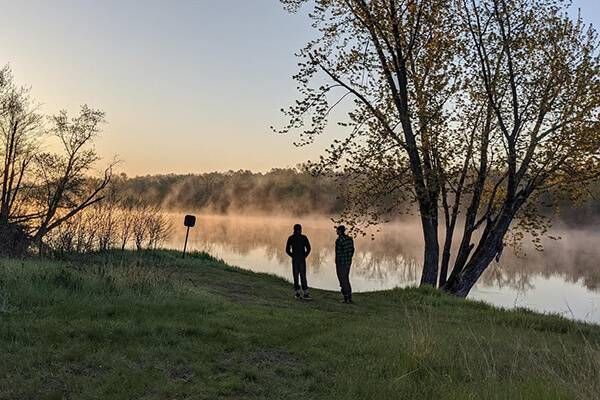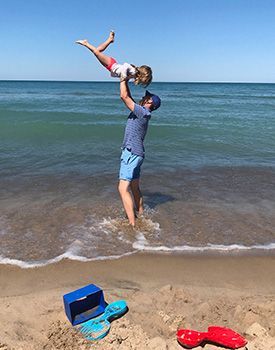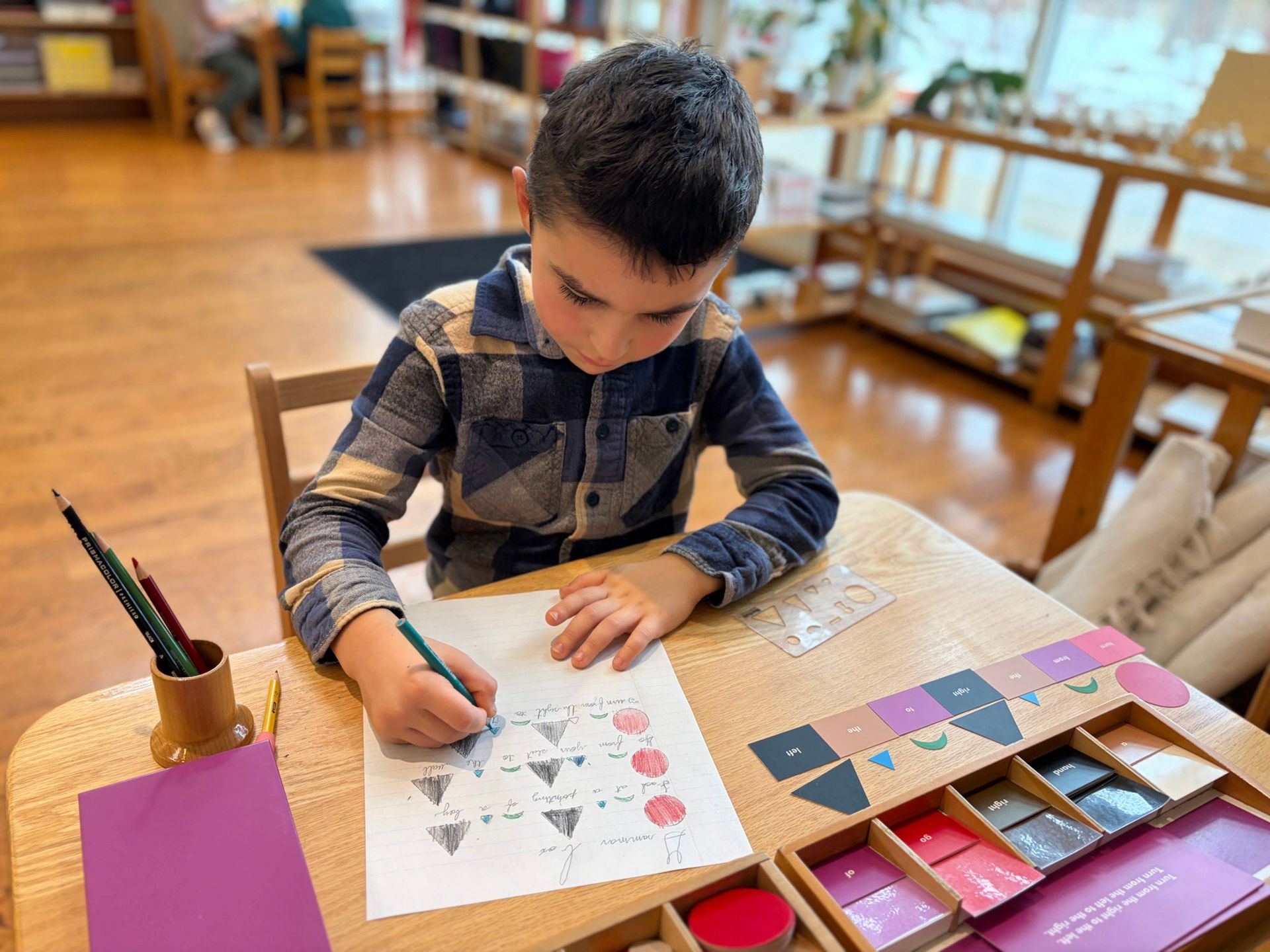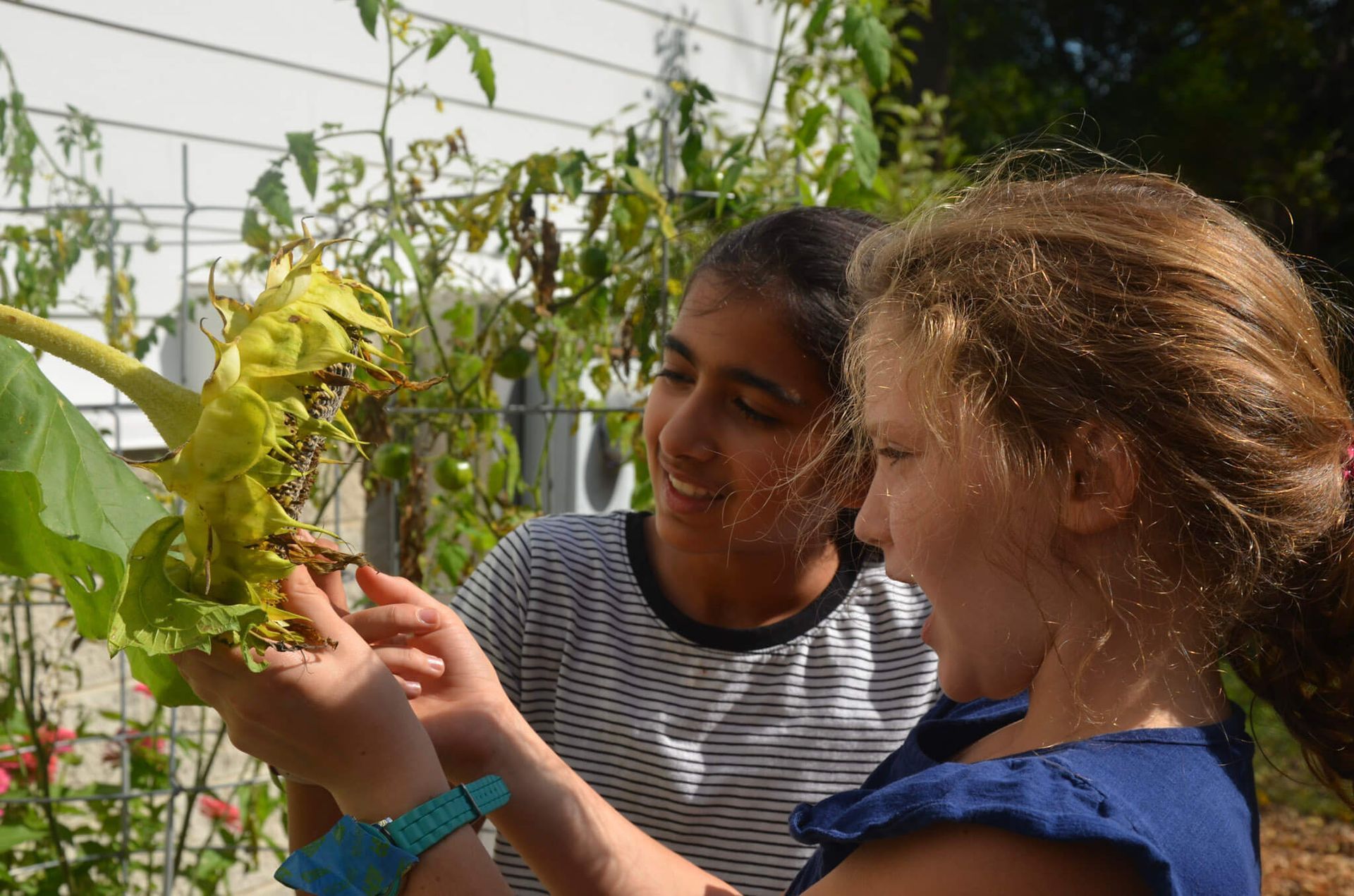
Teacher Training
Becoming a Montessori teacher is no small task. For each age level, there is a year-long, intensive training course. Students sit in a lecture-style format, taking notes on all aspects of the Montessori philosophy, and then learning how to use each material in the classroom, along with all the variations of their use. Students spend time each day practicing using the materials, and then they create their own set of albums from their notes with all the presentations and variations possible for the entirety of the curriculum, complete with comprehensive notes and illustrations. At the end, there are both written and oral exams, administered by international examiners who travel to the training center especially for this purpose.
However, all this academic work is not the heart of Montessori teacher training. In fact, Dr. Maria Montessori refers to this time as the “Preparation of the Adult.” The true purpose of the training is to change the hearts of adults - to change the way adults see children and interact with them. Only by changing their hearts can they truly be ready to work with children. Dr. Montessori wrote, “A Montessori teacher must be created anew” (Montessori, 1946/1963, p. 67). The adult who leaves a training program must be a new version of the adult who entered the training program. They have new academic and practical information. But, more importantly, they have a new perspective of children and the world. Dr. Montessori was clear: “It is not so easy to educate anyone to be a good teacher… we must make a long study. Conversion cannot come to everybody. Our conversion must be in the heart” (Montessori, 2012, p. 26).
This preparation of the adult is an essential element to a Montessori experience. It is perhaps the essential element to a Montessori experience. Without a truly prepared adult, a classroom is simply a room full of beautiful didactic materials.
Parent Training?
What does this theory of preparation mean for parents? Surely they are not intended to take an academic year to prepare themselves to become a parent. And what if they already are parents? Is it too late?
Of course not.
This bears repeating: Of course not.
A parent is not a Montessori teacher. Even Montessori teachers aren’t Montessori teachers at home with their children. When Paula Polk Lillard writes about learning how to support children at home, she says, “[The] parent, in becoming a teacher instead of a servant, still remains a parent. She might best be described as a ‘mother-teacher’ with an emphasis on mother, rather than a ‘teacher-mother’ with the teacher role dominating the relationship” (Lillard and Jessen, 96).
A house is not a classroom, and a child is not a student when they are at home. Lillard explains, “[Home] is a harbor for both parent and child and it is important that there is a softening of expectations there” (Lillard, 96).
So, if parents do not need an intensive training course to become a parent, and if it is never too late to be the parent you want to be, how can mothers and fathers think about their own preparation? Dr. Montessori’s belief in the importance of the preparation of the adult is still relevant, even though it takes on a different hue for parents.
The Preparation of the Parent
There are many books on how to be a Montessori parent. There are many good books on how to be a Montessori parent. There are blogs, social media feeds, consultants, lectures, and podcasts. All of these sources of information will give great ideas on what to do at home with your child: activities, books, things to buy, things not to buy, language to use, ways to discipline.
And even as these efforts matter, the most important part of your child’s environment is you. Who you are matters more than what you set up for your child or do with them. Who you are will infiltrate what you do, how you do it, what you say, and how you say it. Your heart is the most important part of your child’s world. Taking care of who you are is the most profound way of affecting your child’s development.
Does this mean you have to be perfect?
Of course not.
This bears repeating: Of course not.

In fact, a perfect parent does not prepare a child for an imperfect world. We are meant to be mothers, fathers, and caregivers who have many flaws. We are meant to struggle and fail and try again. And our children are meant to witness this.
So how do we prepare ourselves? How do we work on who we are?
For parents, the preparation is a continually evolving one. We become parents exactly how we are, and then we maintain a willingness to examine ourselves, to work towards being who we want to be, and, when we fall short, to begin again.
Preparing ourselves as parents is unique to every individual. Some people need time alone reading, some need walks with friends, some need time talking to a trusted professional, some need vigorous exercise, some need to spend time at a fulfilling job during the day.
Every bit matters. It can be easy to imagine your “ideal day,” and assume that because it is impossible to go for a walk, do yoga, meditate, eat a healthy meal, and get a good night’s sleep while caring for your family and working, it means that you are unable to prepare yourself as an adult. This is not the case. Every bit matters. Even taking a five minute walk while a spouse supervises breakfast, or meditating for seven minutes in the car after school drop-off, or calling a friend for a ten minute chat after bedtime helps.
A question to ask yourself might be, “Where am I saying ‘yes’ too much?” Is it in relationships with friends? Is it with extra commitments at work? Is it with domestic responsibilities? Stepping back even slightly in that category will create an open area. Making this space in your mind and in your day for the importance of tending to your mental and emotional state will have a cascading effect throughout the days, weeks, and years ahead.
All of these efforts provide a way to manage stress and anxiety, and create an openness to ideas and feedback that generally match your parenting philosophy and allow you to examine your preconceived biases and thoughts about human relationships and development.
When you do the work to take care of your own mental state, and when you are able to observe your thought patterns and reactions, you will inevitably show up how you want to show up for your children.
Final Thoughts
Adults in children’s lives have tremendous influence on the world they will grow up in. Dr. Montessori recognized that the adults themselves were an intricate part of a child’s environment. She believed that teachers must prepare themselves for this responsibility - not just with an academic training, but with a preparation of the heart.
Parents do not take a training course before welcoming their children. There are no lectures, no practice, no exams. There is simply a baby, placed in the arms, and the attending responsibilities and joys that accompany them. A parent’s preparation is different from a teacher’s. This preparation happens every day, in and alongside the activities of life.
The work we do on our hearts - the work that moves us towards who we want to be - is the preparation we do as parents. When we tend to our inner world, whatever that looks like for us, we move towards who we want to be for our children. When we make space to examine our own anxiety, fears, personal stresses, expectations, and prejudices, and when we find even a little freedom from those thought patterns that hold us back, we prepare ourselves for our children.
Raising children is one of the most challenging and rewarding journeys we will embark on in our lives. There is so much to do and so much to learn. It is consuming, both practically and emotionally, and when you’re in it, it is hard to imagine what it will be like when it ends. But the truth is that it will end. The years with infants, toddlers, young children, and adolescents will end. These beautiful, challenging people, whom we spend so many years with in our homes, will eventually leave, as adults, ready to forge their own paths in the world.
Our hearts shine on everything in our children’s world - our homes, our words, our values, our choices. And when we picture our children as adults, and we imagine all the things we dream for them, who we are will matter more than anything we do. The work we do for our hearts will give our children the light they need to grow, straight and true to themselves and their fullest potential.
References
Lillard, P.P. , & Jessen, L.L. (2003). Montessori from the start. New York: Schocken Books.
Montessori, M. (1946/1963). Education for a new world. Madras, India: Kalakshetra.
Montessori, M. (2012). The 1946 London lectures. Amsterdam, the Netherlands: Montessori-Pierson Publishing.


